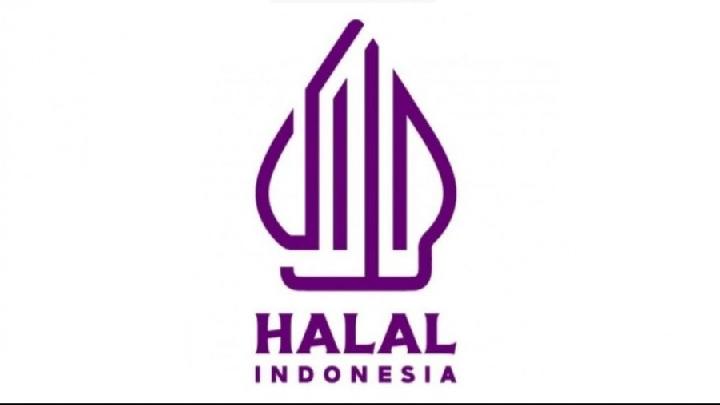Halal Certificate Registration in Indonesia
Halal certificate registration in Indonesia is crucial because most of the population is Muslim and cares about the halal status of the products they consume. Under Law No. 33 of 2014 on Halal Product Assurance (UU JPH), all products circulating and traded in Indonesia must have a halal certificate. Article 4 clearly states, “Products entering, circulating, and traded within Indonesian territory must be halal certified.” As a result, halal certificate registration in Indonesia applies to both domestic and imported products intending to enter the market.
To clarify the procedures for foreign manufacturers who want to sell their products in Indonesia, the Halal Product Assurance Agency (BPJPH), under the Ministry of Religious Affairs, has established specific rules and processes for halal certificate registration. These procedures differ slightly from those for domestic products, as outlined in Article 127 of Government Regulation (PP) No. 39 of 2021 on Halal Product Assurance.
The Importance of Halal Certificate Registration in Indonesia
UU JPH specifies that all products in Indonesia must be halal certified, and imported products must obtain halal certification from foreign halal institutions recognized by BPJPH. This recognition occurs through a process known as Mutual Recognition Agreement (MRA), ensuring mutual acknowledgment between BPJPH and halal agencies in the country of origin. With an MRA in place, imported products with halal certificates from recognized agencies do not need to undergo re-certification in Indonesia; however, registration is still required before they can be distributed.
According to Siti Anisah, Head of the BPJPH’s Center for International Cooperation and Halal Standardization, halal certificate registration for foreign products is crucial in facilitating their entry into the Indonesian market. BPJPH has partnered with several foreign halal certification bodies, with 68 foreign agencies currently in the approval process. Some agencies, including those from Korea, have recently completed document verification.
The Process of Halal Certificate Registration in Indonesia
Here is a step-by-step overview of the halal certificate registration process required for imported products to gain halal recognition in Indonesia:
1. International Cooperation (Mutual Recognition Agreement)
BPJPH mandates that halal certifications must come from agencies based in countries with an MRA or similar bilateral agreements covering economic, trade, or socio-cultural matters with Indonesia, as outlined in Article 119(4) of PP No. 39 of 2021. Through these agreements, BPJPH can recognize halal certifications from these foreign agencies, allowing their products entry without additional Indonesian certification.
2. Registration Through the SI-HALAL System
Once the MRA is in place, foreign halal certification bodies (LHLN) representing international producers must register for halal certification via BPJPH’s halal information system, known as SI-HALAL. During this phase, the LHLN submits the required documentation for BPJPH’s verification, including information on production processes, materials used, and slaughtering procedures if the product contains animal ingredients.
3. Document Verification by BPJPH
Upon submission, BPJPH will verify documents following a set scheme—either halal certification acknowledgment or accreditation and recognition of halal certification. Verification ensures that the processes and ingredients meet Indonesia’s halal standards. Once verified, BPJPH will issue an invoice for the certification fee, which must be paid by the LHLN as part of the halal certificate registration process.
4. Certification Fee Payment
After document verification, the LHLN is required to pay a certification fee, excluding assessor accommodation and transportation. Proof of payment must be submitted to BPJPH to proceed with the next stage of assessment.
5. BPJPH Assessment Team Evaluation
Upon confirmation of payment, BPJPH’s assessment team will conduct an evaluation to verify the halal certification’s compliance with Indonesian standards. This includes a thorough document examination, and if needed, field visits to ensure data accuracy and production alignment.
6. Issuance of Accreditation Certificate or MRA
After completing all the steps and confirming that the product meets the halal criteria, BPJPH grants an accreditation certificate or MRA, allowing the imported product to circulate legally in Indonesia with recognized halal status.
Challenges in the Halal Certificate Registration Process in Indonesia
As the demand for halal certificate registration in Indonesia grows, importers encounter several challenges in the process. Consequently, various stakeholders in the industry have called on the government to ease the halal certification process. One of the key requests is to reduce certification costs, particularly considering the economic constraints and additional expenses associated with obtaining halal certification.
Another significant challenge is the need for a more efficient system for processing halal certification applications. Stakeholders have suggested the implementation of technology that facilitates the halal certificate registration process, such as integrating BPJPH’s system with Halal Certification Institutions (LPH). This integration would improve efficiency and provide greater transparency in the certification process.
User satisfaction is also a priority for importers, who hope BPJPH and LPH will provide prompt feedback, enabling businesses to better plan their activities and meet sales targets. Swift and timely responses from BPJPH can help businesses strategically organize their operations and effectively respond to the demand for halal products in the market.
Opportunities and Benefits of Halal Certificate Registration in Indonesia
Registering for halal certification in Indonesia serves not just as a regulatory requirement but also as a gateway for foreign products to enter Indonesia’s expansive market, which has a predominantly Muslim consumer base. Muslim consumers view halal-certified products as more valuable and trustworthy. Moreover, obtaining halal certification gives imported products a competitive edge, allowing them to attract a broader audience that prioritizes halal status.
The certification process also strengthens economic ties between Indonesia and partner countries with recognized halal certification. Through these partnerships, BPJPH can expand its network, promoting more efficient and effective halal recognition and expediting the entry of imported halal products without requiring time-consuming and costly re-certification processes.
Conclusion
Halal certificate registration in Indonesia is mandatory under UU JPH and PP No. 39 of 2021. This process involves international agreements, registration through the SI-HALAL system, BPJPH verification, fee payment, and final assessment by BPJPH assessors. Through rigorous procedures, BPJPH ensures imported products meet Indonesian halal standards.
